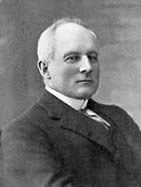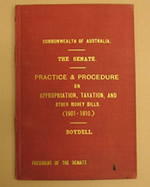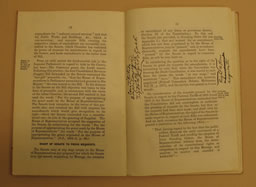130 Amendments changed to requests
-
If a bill received from the House of Representatives, in which the Senate has made amendments, is returned by the House of Representatives with a suggestion that any of the amendments should be made the subject of a request by the Senate in accordance with section 53 of the Constitution, the Senate may forthwith, or on a future day, take the message into consideration in committee; and if any requests for amendments are made, the bill shall be returned to the House of Representatives with a message requesting that House to make the requested amendments.
-
In dealing with any such requests the same procedure shall be followed as for requests made in the first instance.
-
After the requests have been disposed of, if the amendments of the Senate have not been agreed to, the procedure with respect to amendments shall be followed.
Amendment history
Adopted: 9 September 1909, J.121, as SO 224B (to take effect 1 October 1909) but renumbered as SO 228 for the 1909 edition
1989 revision: Old SO 233 restructured as three paragraphs and renumbered as SO 130; language modernised and expression streamlined
Commentary
See SO 129 for the background on this standing order which was adopted at the same time. It was described as being necessary for cases when the Senate had made a mistake by making an amendment rather than a request. Often, however, this is an arguable point and it becomes a matter for negotiation between the Houses, which is what happened in relation to the Sugar Bounty Bill in 1903 when the Senate accepted a suggestion from the House of Representatives that a certain amendment should have been made in the form of a request.
At this point, the Senate has already read the bill a third time. The standing order provides for the Senate to deal with any request it decides to make in the same way as it would have dealt with a request in the first instance. If the amendments have not been agreed to by the House, they are dealt with after the request has been settled, in accordance with SO 129.

Charles Boydell, Clerk of the Senate 1908-17, author of the first reference work on the Senate's powers unders section 53 of the Constitution (Source: Commonwealth Parliamentary Handbook)

Boydell's small booklet on the powers of the Senate, the first of many scholarly writings by senate clerks

Detail from Boydell's booklet on the powers of the Senate